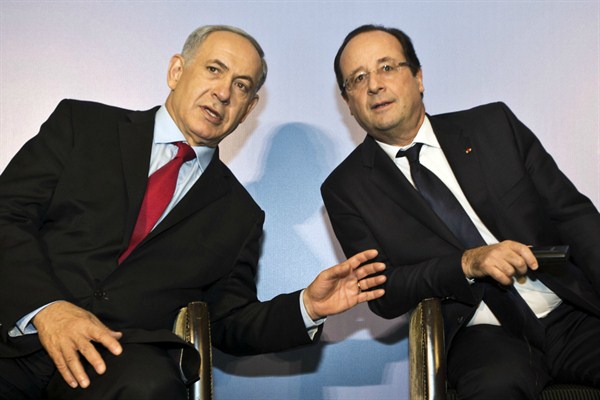France has been in the spotlight during the Israel-Hamas war for anti-Semitic attacks that took place on the margins of marches protesting Israel’s military campaign in Gaza. But the conflict has also highlighted continuity with shifts in France’s policy toward Israel as well as its broader foreign policy alignment begun under former President Nicolas Sarkozy. President Francois Hollande’s response to the current conflict, combined with his foreign policy approach to date, suggests the shifts have achieved a bipartisan consensus in Paris, although not an uncontested one.
Though an early ally of Israel and crucial partner in the development of Israel’s nuclear weapons capability, France has been perceived as a strong supporter of the Palestinian cause at least since the aftermath of the Six-Day War in 1967, when domestic sympathy for Israel as an underdog began to erode in the context of the occupation and settlement of the West Bank and Gaza. President Francois Mitterrand used his 1982 state visit to Israel to call for a two-state solution while addressing the Knesset. In 1996, when President Jacques Chirac scolded the Israeli security detail accompanying him on a tour of East Jerusalem for its rough handling of Palestinians, it was simply the most visible expression of tensions that had built up during the visit due to his vocal support for Palestinian statehood. Bilateral relations with Israel were further complicated by France’s broader Middle East policy, particularly its historical defense relationships with hostile Arab countries, including Iraq, and its relations with Lebanon and Syria.
Nevertheless, if the France-Israel relationship was often plagued by distrust, Chirac had already begun a low-profile thaw toward the end of his second presidential term, in the context of a hard-line stance against Iran’s nuclear program abroad and a spate of anti-Semitic incidents at home. But it was Sarkozy who, upon taking office in 2007, made a priority of formalizing and vocally articulating the shift currently on display.

